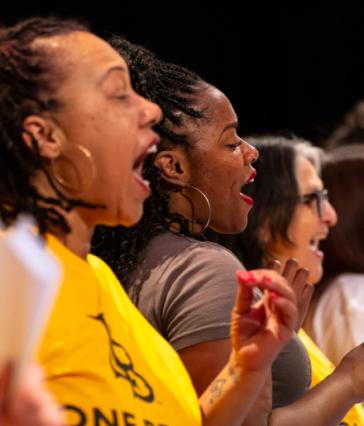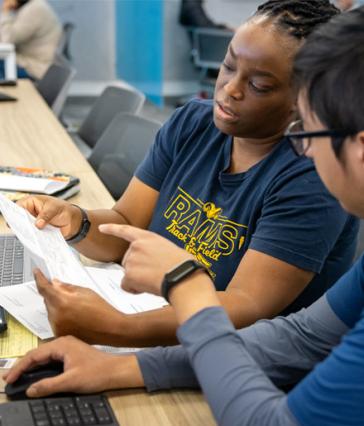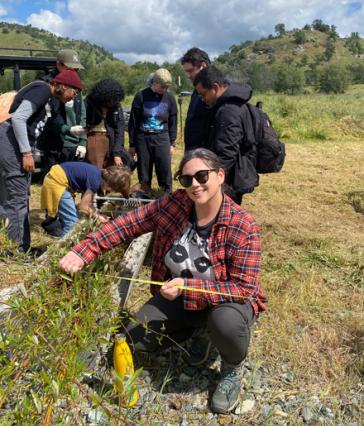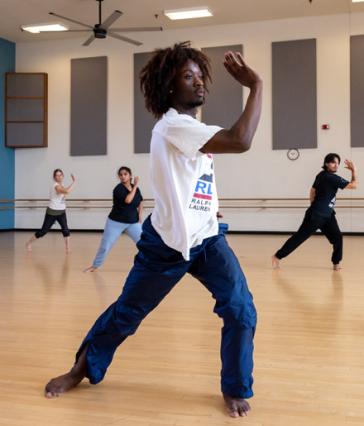CSULB celebrates the legacy of Black hair during Black History Month
Janay Taylor ’22 had always struggled with her hair.
She would watch other Black women with wavy, loose curls, sporting styles that she – with tightly coiled “4C” textured hair – could not.
Over the years, she tried the gamut of styles, from relaxing it to getting weaves, but she never felt good.
“It always influenced how I felt about myself,” said Taylor, who earned her B.A. degree in Africana Studies. “I always felt like it (her hair) wasn’t good enough.”
But when she finally decided to have her hair stylist cut it all off, her life changed.
“I remember sitting in the chair and being so nervous that I cried. I didn’t know how I was going to look," Taylor recalled. “And then she cut it and she showed me that I had texture and how to style it and all of a sudden, this new-found confidence came out.”
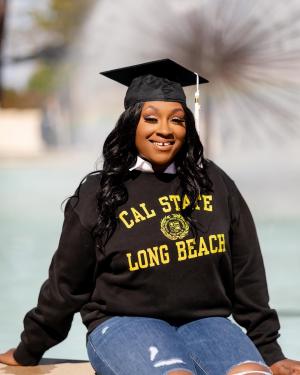
Taylor hopes to share her epiphany at “Honor Your Crown,” a space in which the significance and influence of Black hair will be explored and celebrated as part of Cal State Long Beach Black History Month.
The event is sponsored by the Black Resource Center and Queen II Queen, a supportive space for Black female students at The Beach.
It's among the two dozen events being held throughout campus and in the virtual space this month.
“Black History Month is an opportunity to display the vastness of Blackness and Black experience at The Beach,” said Paul Carter, assistant director of the Black Resource Center. “Ultimately, this (event) is the essence of Black History Month - a time to convene and honor our history. And to quote James Weldon Johnson, ‘Let us march on 'til victory is won.’ "
“Black women’s hair is part of our personality. It’s a part of our struggle. It’s such a strong part of being a Black woman,” Taylor continued.
Black women’s relationship with their hair has been complicated. And embracing one’s natural beauty while living in a society that values Eurocentric standards of beauty can take a heavy toll on one’s self-esteem.
But it’s time to celebrate the undeniable influence that Black hair and culture have had on this country and the world, Taylor said.
These days, Taylor changes her hairstyle more for fun, as opposed to some connection to her self-esteem. And she hopes that people come away from the event feeling empowered by their hair.
“It shouldn’t be what controls your self-esteem,” she said. “No one else has hair like us, just as no one is us.”







